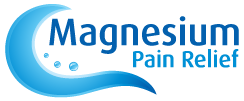The Benefits of Zinc
Discover the many benefits of adding a zinc supplement to your diet
Zinc is an immune booster helping to suppress cold and flu symptoms. It has also been proven clinically to increase T-cell, B-cell and Natural Killer cell activity. Because it is easily absorbed, along with the zinc-vitamin C bond, Ionic Zinc has the ability to ward off and even reduce the amount of time a person would have to put up with a cold.
A strong immunity is like having an extra boost to your health. Ionic Zinc should be used on a regular basis to maintain better health in the young and the older alike.
The benefits of Zinc
- An essential mineral that is found in almost every cell
- Provides immediate protection against disease
- Improvement in symptoms of coughs and colds
- Stimulates the activity of enzymes, which are substances that promote biochemical reactions in the body
- Supports a healthy immune system
- Promotes healthy hair and facilitates wound healing and skin conditions, such as Acne, Eczema and Psoriasis
- Helps maintain your sense of taste and smell
- Essential element for DNA synthesis
- Supports normal growth and development during pregnancy, childhood, and adolescence
- Prevention of Pneumonia and diarrhoea in children
- Works to protect against prostate cancer and oesophageal cancer
How much do we need?
The Recommended Dietary Allowance (RDA) is the average daily dietary intake level that is sufficient to meet the nutrient requirements of nearly all (97 - 98%) individuals in a given life-stage and gender group. The 1989 RDAs for zinc in milligrams (mg), are: 15mg for adult men and 12mg for adult women; 15mg during pregnancy; 19mg for the first six months of breastfeeding and 16mg during the second six months of nursing a baby.
According to a Tufts University study, zinc is the number one nutritional deficiency in children in the U.S.A. Zinc enhances immune system competence and plays a vital role in fighting off cold and flu symptoms and facilitates cellular division and growth, thus maximising physical growth and development in children.
The immune system is adversely affected by even a moderate degree of zinc deficiency and totally depresses with a severe zinc deficiency. Zinc is required for the development and activation of T-lymphocytes—white blood cells help fight infection. It has been clinically observed that T-cell lymphocytes increase in quantity and the ability of lymphocytes to fight infection improves in people with low zinc levels after taking zinc as a food additive. Zinc deficiency impairs many cellular, hormone and hormone-type immune functions including lymphocyte number and function.
Zinc is also known to promote healthy hair and facilitate wound healing and skin conditions, such as Acne, Eczema and Psoriasis. It acts to prevent diarrhoea, respiratory infections and Pneumonia. Zinc interacts with chemicals to send messages to the sensory brain centre and activates areas of the brain that receive and process information from taste and smell sensors. Therefore, zinc facilitates proper functioning of the ability to smell, taste and see. A zinc deficiency leads to dulling of the taste buds and ability to detect scents.
Zinc deficiency manifests clinically as growth abnormalities, hair loss, diarrhoea, delayed sexual maturation and impotence, eye and skin lesions, loss of appetite, weight loss, delayed healing of wounds, taste abnormalities, and mental lethargy.
